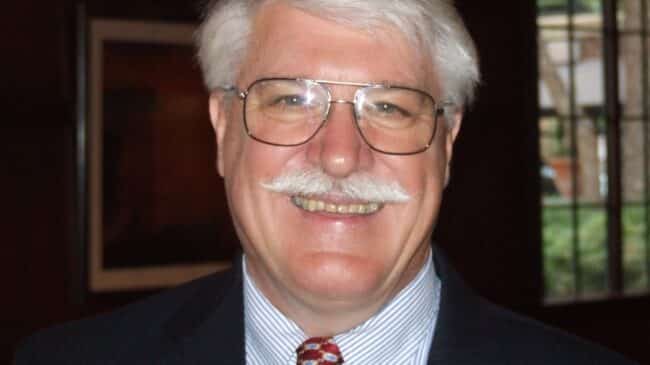David Hartgen recently passed away and I wanted to share a few stories about his impact on me, Reason Foundation, and the transportation world.
Back in 2013, while working to improve the North Carolina Department of Transportation’s (NCDOT) project selection process, I was tasked with developing and identifying several roadway widening projects and recommending the number of lanes for each of the highways. Upon looking at my list, Hartgen, who was extremely well-versed in all things related to North Carolina’s roads, immediately replied, “These lane numbers are wrong. What are you trying to do: insult the NCDOT staffers’ intelligence? They know what they were doing.” He was right. And the project and my long-term work was improved by both his immediate questions and his long-term efforts to get into the nuanced details of improving state roads.
In another instance, several years ago, David got into a heated discussion with one of our Reason partner organizations. We were trying to find ways to improve the efficiency and reduce the waste at state departments of transportation. David didn’t think some of the suggestions made by our partner met the moment. “I’ve been doing this for 50 years, and I am not going to recommend some subpar solution that doesn’t meet engineering standards,” he said.
Our normally talkative partner was suddenly speechless. I came to realize that this was David Hartgen—honest and direct. He cared about getting things right. And while the criticism may not have always been easy to hear or take, it was far better than someone telling you only what you want to hear. His commitment to detail pushed those of us around him to do better work.
David began his career as a policy analyst for the Federal Highway Administration. He later served as director of the statistics department at the New York State Department of Transportation. In 1992, he was recruited to establish the University of North Carolina-Charlotte’s Center for Interdisciplinary Studies, a program that combined engineering, planning, policy, geography, and earth sciences. He worked with hundreds of students during his time directing the program, including Greg Fields, who has worked with us on a number of Reason Foundation studies.
David engaged his students with wit and insight. He always related the backstory behind the lesson to provide context. Explaining multinomial logit models is excruciatingly dry, but David had the ability to put them in perspective.
In 2007, he retired from the university and became an independent consultant working with Reason Foundation, John Locke Foundation, and others. He even found some time to go fishing. Friends remember David as a great trout fisherman and avid fly-tier.
David created the Annual Highway Report, his biggest Reason Foundation legacy. Originally based on his time working in the New York state office of the Federal Highway Administration, the report’s 26th edition will be published this year. Hartgen and the report brought quantitative analysis to state transportation departments by assessing their performance in 13 different metrics, including traffic fatalities, pavement condition, and traffic congestion. It showed taxpayers and drivers how their roads compared to other states and how much bang for the buck they’re getting. The report helps highlight areas for improvement and inefficiencies in state transportation spending and is Reason Foundation’s most-publicized research product.
As a senior fellow here, David worked on many other studies for Reason Foundation. I was fortunate to work with him on the North Carolina project selection study mentioned above, as well as a study analyzing traffic congestion in mid-sized regions, a study examining mobility in Southern California, and three editions of the Annual Highway Report.
Overall, David was the author of more than 350 studies on transportation policy and planning—on everything from the severity of traffic congestion to the cost-benefit analysis of light rail lines. He also served as the editor for several transportation journals through the years.
What I will remember most about David was that he wasn’t afraid to question the status quo. The Annual Highway Report isn’t always popular with state transportation departments because, while some states are going to look like good stewards of taxpayer’s money, others don’t. When low-ranking states questioned the rankings in the highway report, Hartgen was always willing to spend hours working with them. Hartgen showed the state transportation officials that he was using the very data that they themselves had reported to the federal government. He’d show them the data and how to improve in the rankings, telling them they’d either need to improve the quality of their roads or spend taxpayers’ transportation money more efficiently.
David was willing to take a stand for what he believed in. He retired from UNC-Charlotte, in part, due to a disagreement about the city’s planned light rail line. David thought it was a bad investment and the region’s powerful business community did not take kindly to his criticism.
David even disagreed with Reason’s position from time to time. He opposed the development of the I-77 managed lanes in Charlotte, arguing that they were not the best solution to the region’s traffic congestion. And he remained skeptical of toll roads, once taking me on a tour of the mostly empty Western Wake Freeway to help make his argument.
I think it’s safe to say David’s research and analysis probably would have been even more celebrated and popular in the transportation policy world if he’d been willing to bite his tongue and take the politically correct path common in the transportation industry. But that wasn’t David. And for that, among many other reasons, he will be sorely missed.
David Hartgen’s positive impact on Reason and transportation policy will continue to be felt for a long time to come.

